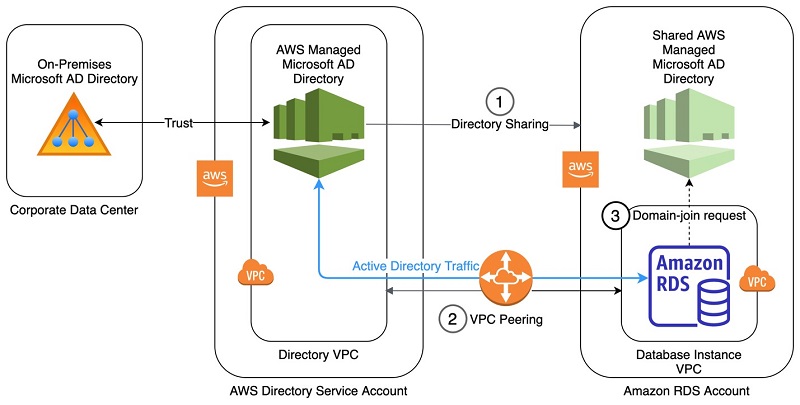AWS Database Blog
Category: Amazon RDS
Moving on from Amazon RDS for PostgreSQL Versions 9.4
Historically, the PostgreSQL community releases a new major version yearly, and with that, has a defined end of life (EOL) policy of older major versions. This allows version and upgrade decisions to be made on dates known well into the future. The community EOL policy is to support a major version for 5 years after […]
Migrating legacy PostgreSQL databases to Amazon RDS or Aurora PostgreSQL using Bucardo
If you are using PostgreSQL earlier than 9.4, you are using an unsupported version of PostgreSQL, and may have limited options to migrate or replicate your databases in Amazon RDS or Amazon Aurora PostgreSQL. This is primarily because PostgreSQL versions older than 9.4 can’t perform logical replication. Bucardo is an open-source utility that can replicate […]
Using IAM authentication to connect with pgAdmin Amazon Aurora PostgreSQL or Amazon RDS for PostgreSQL
This blog post was last reviewed and updated July, 2024. Amazon Relational Database Service (RDS) enables you to use AWS Identity and Access Management (IAM) to manage database access for Amazon RDS for PostgreSQL database instances and Amazon Aurora PostgreSQL clusters. Database administrators can associate database users with IAM users and roles. With IAM database authentication, you don’t need to use a […]
Joining your Amazon RDS DB instances across accounts to a single shared domain
How can you simplify the setup and maintenance and reduce the costs of AWS Managed Microsoft AD directories, while also strengthen the security of your Amazon Relational Database Service (RDS) for SQL Server DB instances? AWS announced that you can now join your Amazon RDS for SQL Server DB instances deployed across multiple AWS accounts […]
Analyze PostgreSQL logs with Amazon OpenSearch Service
September 8, 2021: Amazon Elasticsearch Service has been renamed to Amazon OpenSearch Service. See details. Amazon RDS supports publishing PostgreSQL logs to Amazon CloudWatch for versions 9.6.6 and above. Aurora PostgreSQL supports publishing logs to CloudWatch Logs for versions 9.6.12 and above, and versions 10.7 and above. By live streaming this data from CloudWatch to Amazon Elasticsearch […]
Amazon RDS customers: Update your SSL/TLS certificates by March 5, 2020
This post was originally published on December 20, 2019 and has been updated as of March 4, 2020. Please see new dates and suggested timeline below. IMPORTANT UPDATE: If you are experiencing connectivity issues after the RDS Root CA expires, please skip down to the What do I have to do to maintain connectivity? section. […]
Migration tips for developers converting Oracle and SQL Server code to PostgreSQL
PostgreSQL is one of the most popular open-source relational database systems. It is considered to be one of the top database choices when customers migrate from commercial databases such as Oracle and Microsoft SQL Server. AWS provides two managed PostgreSQL options: Amazon RDS and Amazon Aurora. In addition to providing managed PostgreSQL services, AWS also […]
Disaster recovery on Amazon RDS for Oracle using AWS DMS
AWS Database Migration Service (AWS DMS) helps you migrate data from databases on-premises to Amazon Relational Database Service (RDS). You can also use it to migrate data between heterogeneous or homogeneous database engines, among other things. Businesses of all sizes use AWS to enable faster disaster recovery (DR) of their critical IT systems without having […]
Best practices for upgrading Amazon RDS to major and minor versions of PostgreSQL
This post was last reviewed and update June, 2022 to update the upgrade steps for Amazon RDS. Open-source PostgreSQL occasionally releases new minor and major versions that include fixes for frequently encountered bugs, security issues, and data corruption problems. Generally, Amazon RDS aims to support new engine versions within five months of their availability. You […]
Securing Amazon RDS and Aurora PostgreSQL database access with IAM authentication
AWS provides two managed PostgreSQL options: Amazon RDS for PostgreSQL and Amazon Aurora PostgreSQL. Both support IAM authentication for managing access to your database. You can associate database users with IAM users and roles to manage user access to all databases from a single location, which avoids issues caused by permissions being out of sync […]







